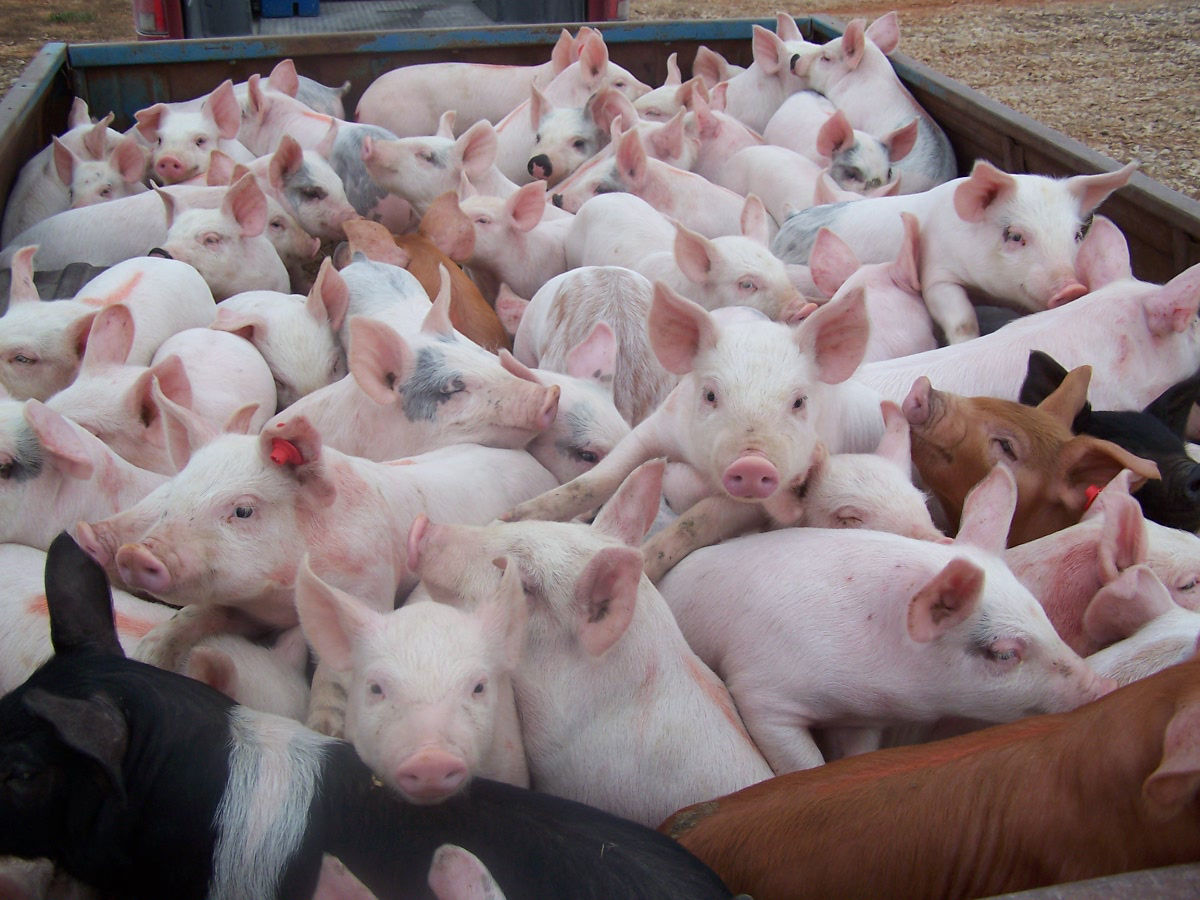Farm and pork groups are denouncing a gag rule forbidding North Carolina hog farmers and their neighbors from discussing litigation against them. Attorneys for those groups have filed amicus curiae briefs in the U.S. Court of Appeals for the Fourth Circuit at Richmond, Virginia, seeking that the gag order be overturned.
The American Farm Bureau Federation and North Carolina Farm Bureau along with the National Pork Producers Council and North Carolina Pork Council filed separate briefs Aug. 7.
Judge Earl Britt, of the U.S. District Court for the Eastern District of North Carolina, imposed the gag order in late June on the parties, lawyers and potential witnesses in lawsuits brought against Murphy-Brown, the hog production subsidiary of Smithfield Foods. The judge said a “significant increase in trial publicity” and the “volume and scope of prejudicial publicity” about the first two cases—one decided in early May and the other two days after the gag order was implemented—could taint future jurors.
“Even though their law-abiding farms have been branded a ‘nuisance’ by trial lawyers seeking multimillion-dollar verdicts from urban juries, the farmers and their neighbors are barred from publicly discussing the conditions and practices on the farms and the devastating effects of the lawsuits on their rural communities,” an AFBF/NCFB release said.
“Trial lawyers actively solicited hundreds of plaintiffs to assert nuisance allegations in dozens of lawsuits against Murphy-Brown LLC. While the suits name only Murphy-Brown as a defendant, most of the farms are independently owned family farms, which stand to lose their contracts and potentially their livelihoods as a result of the litigation.”
The AFBF/NCFB brief said, “The best-informed people to speak about the farms and communities affected by these lawsuits are the member-farmers who are themselves in the cross-hairs, along with their spouses, children, extended family, friends, and neighbors. These people know better than anyone the stakes at issue in nuisance lawsuits, the damage they inflict on rural communities, the toll they take on farm families, and the most effective (and ineffective) strategies for dealing with them in and out of the courtroom.”
The brief denounced what AFBF and NCFB called “the chilling effect” the gag order has on their First Amendment rights.
According to the brief, “Neither AFBF nor NCFB will be able to effectively educate its members on these issues, or effectively advocate for legislative solutions to lawsuit abuse aimed at responsible livestock farms, if it cannot hear and disseminate the words of its own members who have personally experienced these suits.”
For these reasons, the gag order “is stifling (AFBF’s and NCFB’s) associational and expressive activities in clear and troubling ways” and unless overturned “it will continue to do so for years to come.”
Meanwhile, the NPPC/NCPC brief asked the 4th Circuit Appeals Court that it grant Murphy-Brown’s petition to vacate the District Court’s prior restraint on speech, noting that, “All but the most carefully crafted, narrow gag orders are unconstitutional.”
The pork organizations argued that there is no compelling need for the gag order, the District Court did not consider alternatives to the order—including the jury selection process or jury instructions—the order is overbroad and vague, and it won’t be effective. On the latter point, they said it’s “not reasonable to think that any gag order will reduce coverage of these cases or blunt the public’s interest” in them.
In fact, the brief said, there has been extensive coverage of the lawsuits from media outlets in the state and around the country and from advocacy groups and people outside the scope of the gag order.
“The greatest risk of [jury] prejudice,” NPPC and NCPC said, “isn’t the existence of publicity; it is the existence of one-sided publicity that has resulted from the gag order.”
In a release, NPPC President Jim Heimerl, a pork producer from Ohio, said, “As we pointed out in our friend-of-the-court brief, this gag order has had a chilling effect on all hog farmers in North Carolina. As potential witnesses, they’re prohibited from saying anything about or defending their operations, while those opposed to hog farming are free to attack those farmers in the press.”
In three of the nuisance cases decided over the past three months, including one in early August, juries have levied a combined $99 million in compensatory and punitive damages against family farmers over noise and odors from their hog farms. A total of 26 lawsuits have been filed.
Larry Dreiling can be reached at 785-628-1117 or [email protected].

